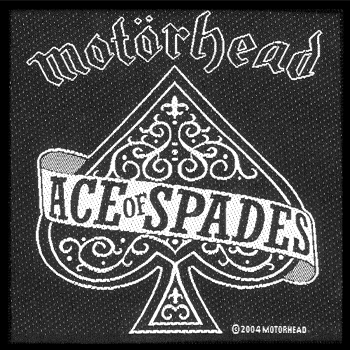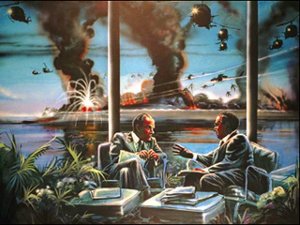I am off to Greece this evening for a one month research and pleasure trip. My partner is working on book that compares family, immigration and higher education policy in three peripheral European democracies, and Greece is one of her case studies. I am tagging along because of our shared interest in studying democracies in crisis. People have asked why we would travel and live in Greece at a time of financial meltdowns, government paralysis, riots and strikes. Our answer is because that is precisely the case. Let me explain.
Most Western political science focuses on stable polities. Scholars prefer stability because, among other things, it provides more complete data sets and long-term institutional analysis. After all, it is easier to study what is than what is not, and to theorise about what is certain rather than what is uncertain. The study of politics in NZ is one case in point–most of the research conducted in NZ politics departments focuses on voting behavior, party and coalition politics, the structure of parliament, policy formation, leadership issues, public management and other topics amenable to both qualitative and quantitative dissection (I am referring here to NZ domestic politics and not to foreign policy and international relations, which tend to be more fluid by nature).
In the last 30 years a sub-field of “transitology” has developed that studies political societies in transition. The sub-field was pioneered by Latin American and Iberian scholars studying the collapse of democracy and rise of authoritarianism, which was followed in the 1980s by path-breaking works on the collapse of authoritarian regimes and the transition to democracy during the so-called “Third Wave” of democratisation that swept the globe in the decade ending in 1995. I was a student of these pioneers, as was my partner (one generation removed). In my case the interest was also personal, as my upbringing in Latin America in the 1960s and 1970s occurred during a period of rampant political turmoil, including coups, attempted revolutions and virtual civil war in a host of countries.
For people like us the interest is in the politics of change. This involves the fluid dynamics of crisis, which often is chaotic and un-institutionalised, always uncertain, hard to chronicle and which can lead to what is known by neo-Gramscians as the “organic” crisis of the state. Periods of stability, in which politics is regimented, diachronic and orchestrated, tells relatively little about the real fabric or fiber of society. But a society under stress, in which that fabric is loaded by economic, social and political crises, is an excellent candidate for study of what ultimately holds a societal order together. It could be institutions, it could be culture, it could be religion, it could be nationalism, it could be football or some combination thereof, but it is during times of crisis that the fibric stitching of a society is most evident (said plainly: its basic ethno-cultural composition and socio-economic and political organisation). In some societies the crisis leads to regime collapse, in others to government collapse (which is not the same as a regime collapse), and in some cases it leads to regime reform or reconstitution. In many cases, a change of government does not suffice to overcome the crisis (this is less true for mature democracies as it is for new ones, but the crisis of mature democracy is absolutely manifest in places such as Greece).
Like people themselves, how a society responds to crisis is the true measure of its character. Whatever the outcome, all the fissures and seams of the political order are exposed during the moment of crisis. No quantitative data set can fully capture that picture (and in crisis ridden countries data sets are incomplete or unavailable), which is why qualitative field research at the moment of crisis is necessary. The latter is not a matter of sitting in an office on a university-to-university exchange courtesy of a government scholarship, and/or talking to other academics and “important” commentators, but instead involves hitting the streets to get a feel for the public mood, reading, listening to and watching the daily news, then digging through ministerial and interest group archives, interviewing policy makers, sectorial leaders, other interested parties and even casual conversations with taxi drivers, waiters and landlords to get both a structured and unstructured “feel” for how the crisis was caused, is managed, and how it will be resolved (all of which involve linguistic and cultural skills not generally taught in NZ universities). Although much of what is recorded cannot be used in a book, it gives the observer a better appreciation of contextual depth when addressing the transitional subject.
Which brings us back to Greece. Greece has what could be described as a vigorous civil society burdened by a clientalistic, corporatist and nepotistic political system. Greeks are quick to defend their perceived rights, often by violent means. This approach is not confined to the political fringe but to middle class groups, students, farmers, shopkeepers, unionists and party activists. For example, a few months back university students took their Rector (akin to a Vice Chancellor) hostage, beat him and forced his resignation because of an increase in student fees. Housewives and shopkeepers have joined in violent protest against rising commodity prices than involved molotov versus tear gas clashes with the police. The use of trash can bombs is a common occurence (especially outside of banks), and the occasional political murder has been known to happen.
In the case of demonstrations in Athens, protestors make an obligatory stop at the US embassy to throw rocks, paint and the occasional firebomb just to make the point that the Yanks suck (much the way the Auckland and Wellington rent-a-mobs target the US consulate and embassy during protests against Israel, globalisation, imperialism, climate change, indigenous exploitation and a host of other real and imagined sins that they hold the US responsible for). The point is that Greeks are extremely politically conscious and very staunch when it comes to defending their self-proclaimed rights (the contrast with NZ society could not be starker, because when it comes to politics–and the 100 person rent-a-mobs nothwithstanding–most Kiwis could not be bothered to get off the couch).
Which is why this is the perfect time to go. Greek society is reeling under the weight of a looming credit default that the EU is still attempting to prevent via a financial rescue package crafted by Germany. Government paralysis is such that it can just stand by and hope for the rescue. Greeks are hitting the streets protesting over any number of greviances, one of which is that they are not in control of their collective destiny. Yet, life goes on.
Besides being a traveling companion to my partner, I shall be making my first observations about how the security forces respond to the crisis. I am particularly interested in how the Greek military reacts to the chaos in civil society, and whether it will take a role in internal security after years of working hard to separate internal from external security functions. Given the ever present animosity towards Turkey, issues of foreign-derived terrorism and demographic change tied to EU expansion, it will be interesting to see how the Greek strategic perspective is configured in light of the internal and external context of crisis in which it is situated.
I shall attempt to write posts once we are settled. In the meantime Lew will hold down the fort until such a time as I get back on line or Anita returns from her hiatus.
PS–the pleasure part involves some weekend island-hopping. Santorini and Samos are on the itinerary.





